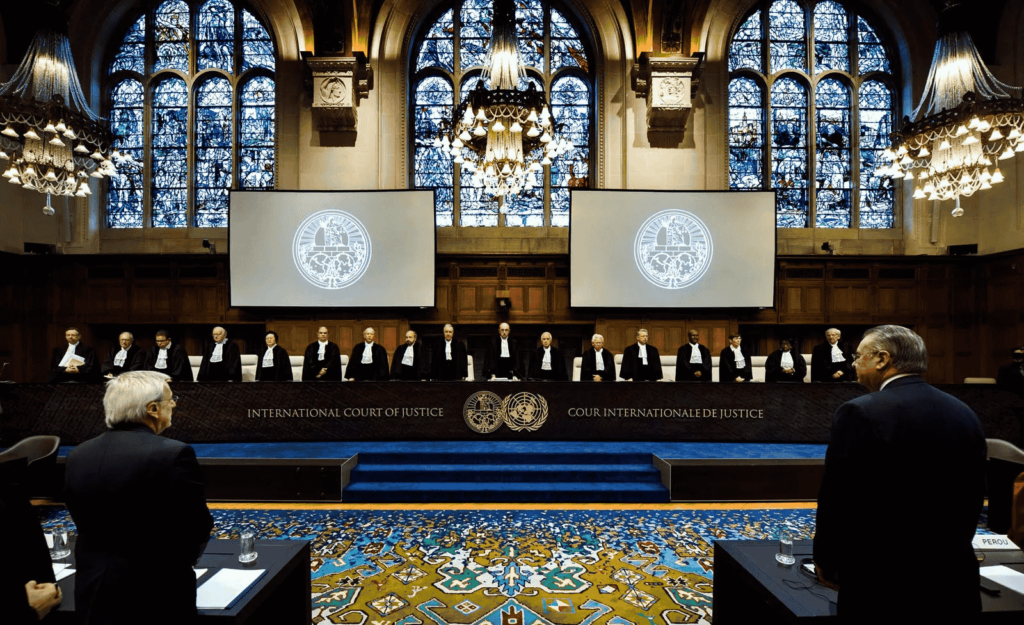
In a milestone for global climate governance, the International Court of Justice (ICJ) issued an advisory opinion, affirming that countries are legally obligated to prevent climate harm, and reduce emissions. Though advisory in nature, this ruling carries deep moral, legal, and political weight, strengthening the hand of developing nations, and setting the stage for future climate litigation worldwide.
Climate Change: More Than a Policy Debate
The ICJ described climate change as an “existential threat of planetary proportions”. By framing it as an urgent legal issue rather than just a policy challenge, the Court has elevated climate change to the global legal consciousness.
This shift means that failure to act is no longer just negligence, it could be seen as an internationally wrongful act, potentially triggering consequences under international law.

ICJ Obligations Beyond Treaties
A remarkable highlight of the ruling is that the obligation to act on climate change arises not only from the Paris Agreement, but also from:
- Customary international law
- Human rights law
- Law of the Sea
- The duty to prevent transboundary environmental harm
This multidimensional legal base solidifies climate responsibility as a universal obligation, beyond climate clubs, or voluntary pledges.
ICJ 1.5°C Target: A Binding Benchmark
In a powerful move, the ICJ reaffirmed that limiting global warming to 1.5°C is not merely aspirational, it is now a legally binding threshold.
Countries Nationally Determined Contributions (NDCs) must reflect their “highest possible ambition”, and align with this target.
This judgment legally anchors a scientific goal, giving it teeth in climate litigation, and policy evaluation.
Justice for the Global South: CBDR Reaffirmed
In a major boost for developing nations, the ICJ reaffirmed the principle of Common But Differentiated Responsibilities, and Respective Capabilities (CBDR-RC).
It emphasized that wealthy nations must take the lead in:
- Emission reduction
- Climate finance
- Technology transfer
This bolsters India’s climate diplomacy, supports Africa’s demands, and strengthens collective calls for climate justice.
Implications for Global Climate Litigation
Though advisory, the ICJ opinion serves as a legal lighthouse for courts across the globe. It offers a universal framework to:
- Hold polluting nations accountable
- Empower affected countries to seek climate reparations
- Equip citizens to sue governments for climate inaction
Think of it as a new legal toolkit for climate activists, lawyers, and policymakers worldwide.
The Age of Climate Accountability
The ICJ’s opinion has laid down a new global standard, transforming climate inaction from a missed opportunity to a potential international violation.
While not enforceable like a court order, this ruling serves as a moral compass, and legal guide in the fight against climate change. It reaffirms what youth across the world have been chanting for years, System change, not climate change.
For more such informative articles, stay tuned at The Worlds Times.



